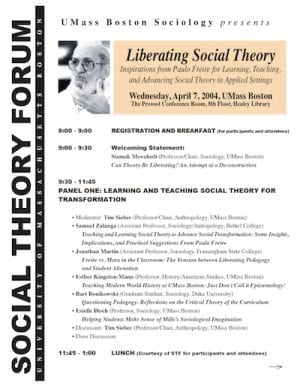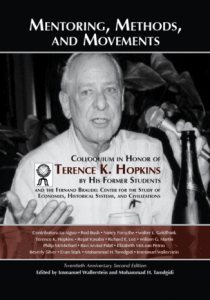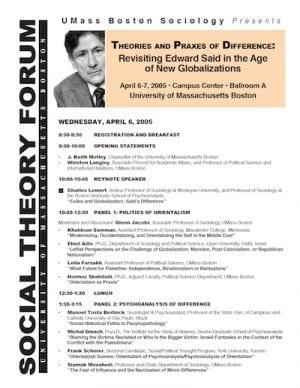Proceedings Journal Article — Freire Meets Gurdjieff and Rumi: Toward the Pedagogy of the Oppressed and Oppressive Selves — by Mohammad Tamdgidi
$15.00
In this paper, Paulo Freire’s Pedagogy of the Oppressed is revisited in order to critically reinvent his contributions to liberatory social theorizing and practice while noting the shortcomings of his approach. The teaching of G. I. Gurdjieff, a Middle-Eastern mystic, is critically conferred to arrive at a quantal sociological reimagination of the Freireian pedagogical approach while using the occasion of the dialogue withFreire to highlight and transcend the one-sided formulations implicit in Gurdjieff’s own introspective theory and practice of liberatory humandevelopment. To illustrate, Rumi’s “Song of the Reed” is recited as both liberating theory and practice engaging both the intraas well as interpersonal dimensions of human sensuous, intellectual, and emotional centers.
Description
Abstract
In this paper, Paulo Freire’s Pedagogy of the Oppressed is revisited in order to critically reinvent his contributions to liberatory social theorizing and practice while noting the shortcomings of his approach. It is argued that Freire’s pedagogy would more effectively serve liberatory praxis if the Newtonian sociological structure of his pedagogy is abandoned in favor of quantal sociological imaginations whereby the dialectics of oppression and liberation are conceived intrapersonally as well, as part of an open-ended, non-reductivist, and unpredictable pedagogical praxis that also takesinto consideration the multiplicity of human selfhood on one hand and, on the other, the significant challenge posed by the human subconscious mindfor the transcendence of oppressive human interactions within and without. The teaching of G. I. Gurdjieff, a Middle-Eastern mystic, is critically conferred to arrive at a quantal sociological reimagination of the Freireian pedagogical approach while using the occasion of the dialogue withFreire to highlight and transcend the one-sided formulations implicit in Gurdjieff’s own introspective theory and practice of liberatory humandevelopment. To illustrate, Rumi’s “Song of the Reed” is recited as both liberating theory and practice engaging both the intraas well as interpersonal dimensions of human sensuous, intellectual, and emotional centers.
Recommended Citation
Tamdgidi, Mohammad. 2004. “Freire Meets Gurdjieff and Rumi: Toward the Pedagogy of the Oppressed and Oppressive Selves.” Pp. 165-186 in Liberating Social Theory: Inspirations from Paulo Freire for Learning, Teaching, and Advancing Social Theory in Applied Settings: Proceedings of the First Annual Social Theory Forum, April 7, 2004, UMass Boston (Discourse of Sociological Practice, Vol. 6, Issues 2, Fall 2004). Issue Guest Editor: Mohammad H. Tamdgidi. Sociology Department, UMass Boston.
Read the Above Publication Online
To read the above publication online, you need to be logged in as an OKCIR Library member with a valid access. In that case just click on the large PDF icon below to access the publication. Make sure you refresh your browser page after logging in.







